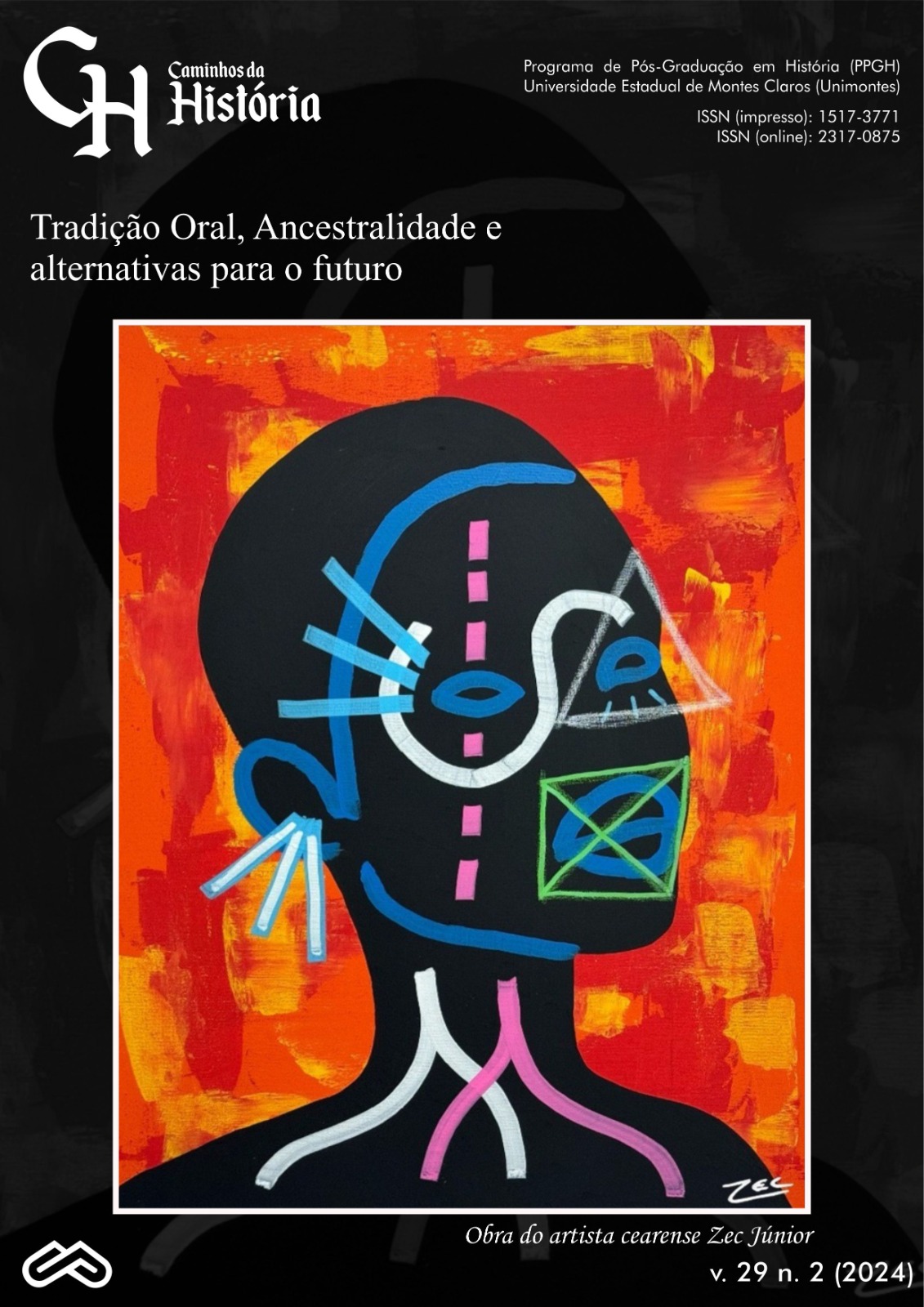Reconstructing the sounds of the past: listening to women about the De Pé no Chão Também se Aprende a Ler campaign (1961-1964)
Reconstructing the sounds of the past: listening to women about the De Pé no Chão Também se Aprende a Ler campaign (1961-1964)
DOI:
10.46551/issn.2317-0875v29n2p.60-76Keywords:
Sensitive listening, Potiguar Women, Educational Campaign, Sounds of the past, Standing on the groundAbstract
The educational campaign standing on the ground: You also learn to read was created during the municipal administration of Djalma Maranhão, in the city of Natal, in 1961, aiming to eradicate illiteracy and value popular culture. The initiative was assisted by educator Paulo Freire and the mobilization of part of the youth who longed to transform reality through education. Regarding cultural activities, these were mirrored in the Popular Culture Movement (MCP) of Recife. In addition, its implementation involved the collaboration of women in key activities of the municipal administration. With the civil-military coup of 1964, these women were arrested, accused of subversion and had their lives transformed by the resurgence of the military regime. The methodology used involved historical research and interviews linked to the Comprehensive Discourse Analysis elaborated by Jean-Claude Kaufmann (2013), based on the sensitive listening of five women, analysis of government documents and local journals. As a result, through the perspective of women, we unveil peculiar aspects of the implementation of educational activities, notably the success of adult literacy in the city of Natal and the political conjuncture tainted by polarization and disputes for local hegemony.
Downloads
References
ALBERTI, Verena. Ouvir contar: textos em história oral. Rio de Janeiro: Editora FGV, 2004.
BEISIEGEL, Celso de Rui. Estado e Educação Popular: um estudo sobre a educação de adultos. São Paulo: Pioneira, 1974.
CORTEZ, Margarida de Jesus. Memórias da campanha “de pé no chão também se aprende a ler”: reflexões sobre a prática pedagógica de ontem e de hoje. Natal, RN: EDUFRN, 2005.
FÁVERO, Osmar; SEMERARO, Giovanni (org.). Democracia e construção do público no pensamento educacional brasileiro. Petrópolis, RJ: Vozes, 2002.
FÁVERO, Osmar. Cultura Popular: memória dos anos 60. Rio de Janeiro: Edições Graal, 1983.
GERMANO, José Willington. Lendo e Aprendendo: A Campanha de Pé no Chão. São Paulo: Autores Associados: Cortez, 1989.
GEERTZ, Clifford. A interpretação das culturas. Rio de Janeiro: Livros Técnicos e Científicos. Editora S.A, 1989.
GÓES, Moacyr de. De Pé no Chão Também se Aprende a Ler (1961-1964): uma escola democrática. Rio de Janeiro: Civilização Brasileira, 1980.
KAUFMANN, Jean-Claude. A entrevista compreensiva: um guia para pesquisa de campo. Tradução de Thiago de Abreu e Lima Florêncio. Petrópolis, RJ: Vozes: Maceió, AL: Edufal, 2013.
MILLS, C. Wright. A imaginação sociológica. 6. ed. Rio de Janeiro: Zahar Editores, 1982.
OLIVEIRA, Roselia Cristina de. Falas silenciadas: relatos de mulheres-educadoras sobre a Campanha De Pé no Chão Também se Aprende a Ler. Dissertação de Mestrado, Programa de Pós-graduação em Educação, Universidade Federal do Rio Grande do Norte. Natal, RN, 2005.
PAIVA, Vanilda P. Educação popular e educação de adultos: contribuição à história da educação. São Paulo: Loyola, 1973.
SANTOS, Josimare Francisco dos; RODRIGUES, Adriana Correia; SANTOS, Joelma Gomes Ribas; PAGOTTO, Neucy Coelho. Superioridade masculina: limites entre poder e submissão abordados em Gabriela, adaptação de Walcyr Carrasco. Literatta, Rio de Janeiro, v. 2, n. 2, p. 119-132.
SIRINELLI, Jean-François. Os intelectuais. In: RÉMOND, René. Por uma história política. Rio de Janeiro: UFRJ/FGV, 1986.
WEBER, Max. Economia e Sociedade: fundamentos da Sociologia Compreensiva. Brasília, DF: Editora da Universidade de Brasília, 1991.




















